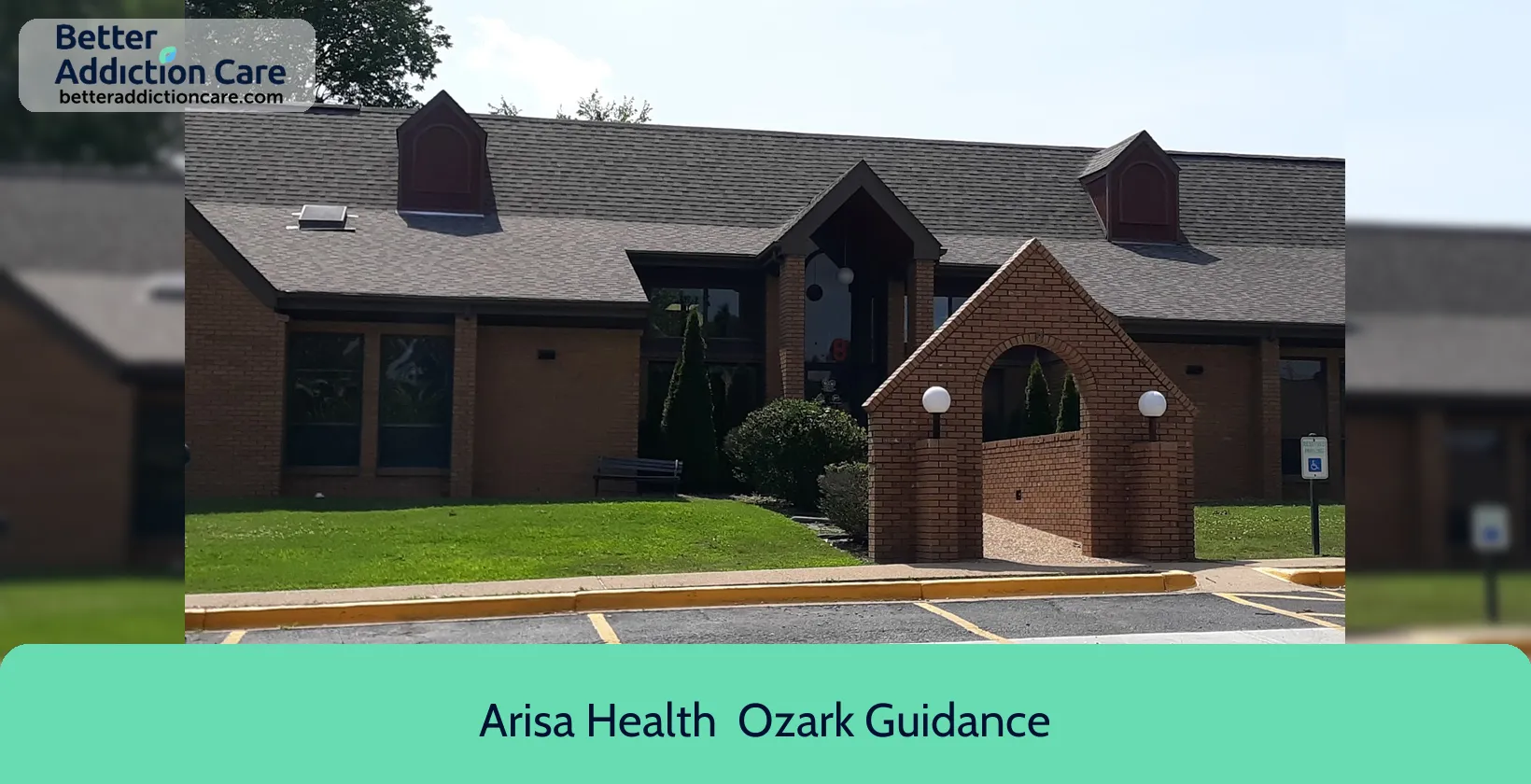Arisa Health - Ozark Guidance Center

Overview
Arisa Health - Ozark Guidance Center is a mental health treatment center for people seeking treatment near Washington County. As part of their treatment modalities for recovery, Arisa Health - Ozark Guidance Center provides individual psychotherapy, couples/family therapy, and cognitive behavioral therapy during treatment. Arisa Health - Ozark Guidance Center is located in Springdale, Arkansas, accepting cash or self-payment for treatment.
Arisa Health - Ozark Guidance Center at a Glance
Payment Options
- Cash or self-payment
- Medicaid
- Medicare
- State-financed health insurance plan other than Medicaid
- Private health insurance
Assessments
- Screening for tobacco use
- Comprehensive mental health assessment
- Comprehensive substance use assessment
- Interim services for clients
- Outreach to persons in the community
Age Groups
- Young adults
- Adults
- Seniors
Ancillary Services
- Assertive community treatment
- Intensive case management
- Case management service
- Court-ordered outpatient treatment
- Illness management and recovery
Highlights About Arisa Health - Ozark Guidance Center
7.48/10
With an overall rating of 7.48/10, this facility has following balanced range of services. Alcohol Rehabilitation: 8.00/10, Drug Rehab and Detox: 7.85/10, Insurance and Payments: 6.00/10, Treatment Options: 8.06/10.-
Treatment Options 8.06
-
Alcohol Rehabilitation 8.00
-
Drug Rehab and Detox 7.85
-
Insurance and Payments 6.00
Accreditations
State mental health department:
State mental health department accreditation refers to the process of evaluating and certifying the quality and standards of a state's mental health department, ensuring that it provides high-quality services and meets specific criteria for mental health care. The accreditation process is performed by a third-party organization and helps to improve the overall care and treatment of individuals with mental health conditions.
Commission on Accreditation of Rehabilitation Facilities (CARF):

CARF accreditation is a globally recognized certification for rehabilitation and human service organizations. It signifies that an organization meets high-quality standards and is committed to providing top-level care. Achieving CARF accreditation involves a rigorous evaluation process, including on-site surveys. This accreditation enhances an organization's reputation, instills trust in clients and funders, and encourages ongoing excellence in the field.
Treatment At Arisa Health - Ozark Guidance Center
Treatment Conditions
- Alcoholism
- Mental health treatment
- Substance use treatment
- Co-occurring Disorders
Care Levels
- Partial Hospitalization Program
- Outpatient
- Outpatient methadone/buprenorphine or naltrexone treatment
- Regular outpatient treatment
- Aftercare
Treatment Modalities
- Individual psychotherapy
- Couples/family therapy
- Cognitive behavioral therapy
- Dialectical behavior therapy
- Integrated Mental and Substance Use Disorder treatment
Ancillary Services
Languages
- Sign language services for the deaf and hard of hearing
Additional Services
- Pharmacotherapies administered during treatment
- Mentoring/peer support
- Drug or alcohol urine screening
Special Programs
- Criminal justice (other than DUI/DWI)/Forensic clients
- Persons 18 and older with serious mental illness (SMI)
- Clients who have experienced trauma

Additional Locations
Get Help Now
Common Questions About Arisa Health - Ozark Guidance Center
Contact Information
Other Facilities in Springdale

7.28

7.43
Browse rehab centers near Springdale and in other cities across Arkansas
DISCLAIMER: The facility name, logo and brand are the property and registered trademarks of ARISA Health, and are being used for identification and informational purposes only. Use of these names, logos and brands shall not imply endorsement. BetterAddictionCare.com is not affiliated with or sponsored by ARISA Health.

